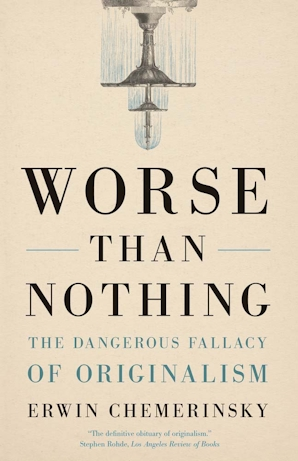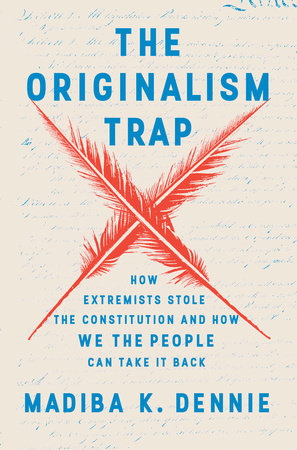Originalism, the school of constitutional interpretation currently modish among conservative lawyers and judges, is not so much an idea as a legal-industrial complex divided into three parts—the academic, the jurisprudential, and the political. In its first part, originalism is an academic pursuit, one that a large number of law scholars have embraced with gusto. A search of legal databases revealed that at least 600 papers have been published on this topic since Ronald Reagan’s attorney general, Edwin Meese, proclaimed it as dogma in 1985—more scholarship than any living creature should have to read, and enough that anyone who criticizes its tenets can always be accused of not knowing the literature.
If, however, originalism were no more than an academic fad, like quoting Roland Barthes or Michel Foucault, we the people would not need to concern ourselves overmuch with it. But the second branch of originalism is its use by judges as a well-developed set of rhetorical tropes by which conservative judges justify their decisions, particularly those that overturn established precedent or further anti-democratic goals. This branch is something far more consequential.
The third strand seeks to maintain public support for conservative judges in general, and for the current nakedly partisan Supreme Court supermajority in particular, by claims of fidelity to something called, variously, “original intent,” “original understanding,” or “original public meaning,” which to nonlawyers tends to be viewed as the legacy of the nation’s Founding Fathers.
This third aspect of originalism—the claim that Americans must accept it as the only legitimate way to divine the meaning of constitutional text—is in many ways the most important. Its role is to overawe the opposition: You who criticize do not oppose us, the Court Donald Trump assembled by banana republic trickery; you oppose James Madison, Thomas Jefferson, Alexander Hamilton, and all the secular gods of our civic religion.
The authors of the three books under review—one, Stephen Breyer, a retired Supreme Court justice; the second, Erwin Chemerinsky, dean of the University of California Berkeley School of Law; and the third, Madiba K. Dennie, a prolific legal commentator and former counsel at New York University’s progressive Brennan Center for Justice—all aim at affecting the struggle for the public mind. The authors seek to persuade nonlawyers that originalism’s necromancy is not the only way to read the Constitution—or even, indeed, a valid way to decide cases at all.


